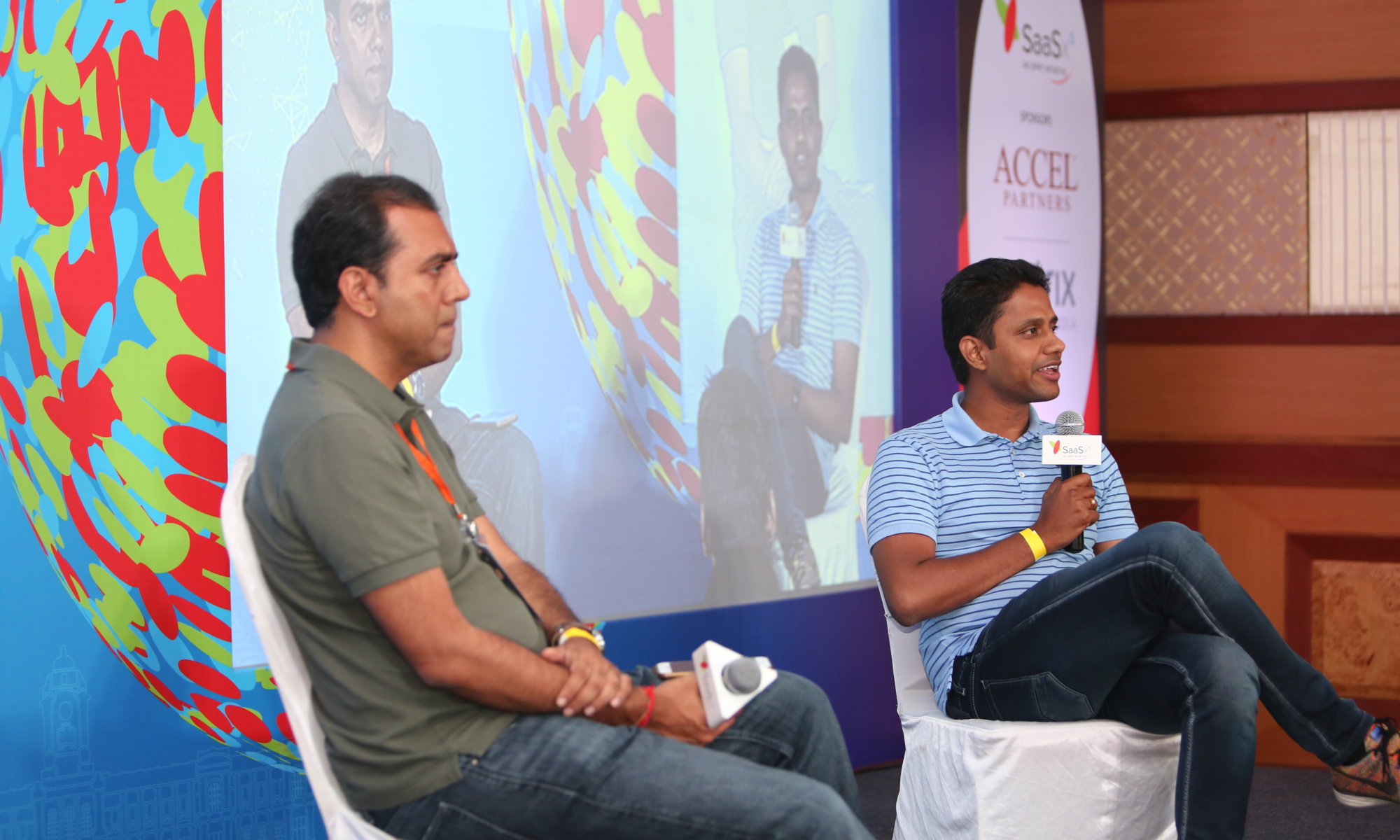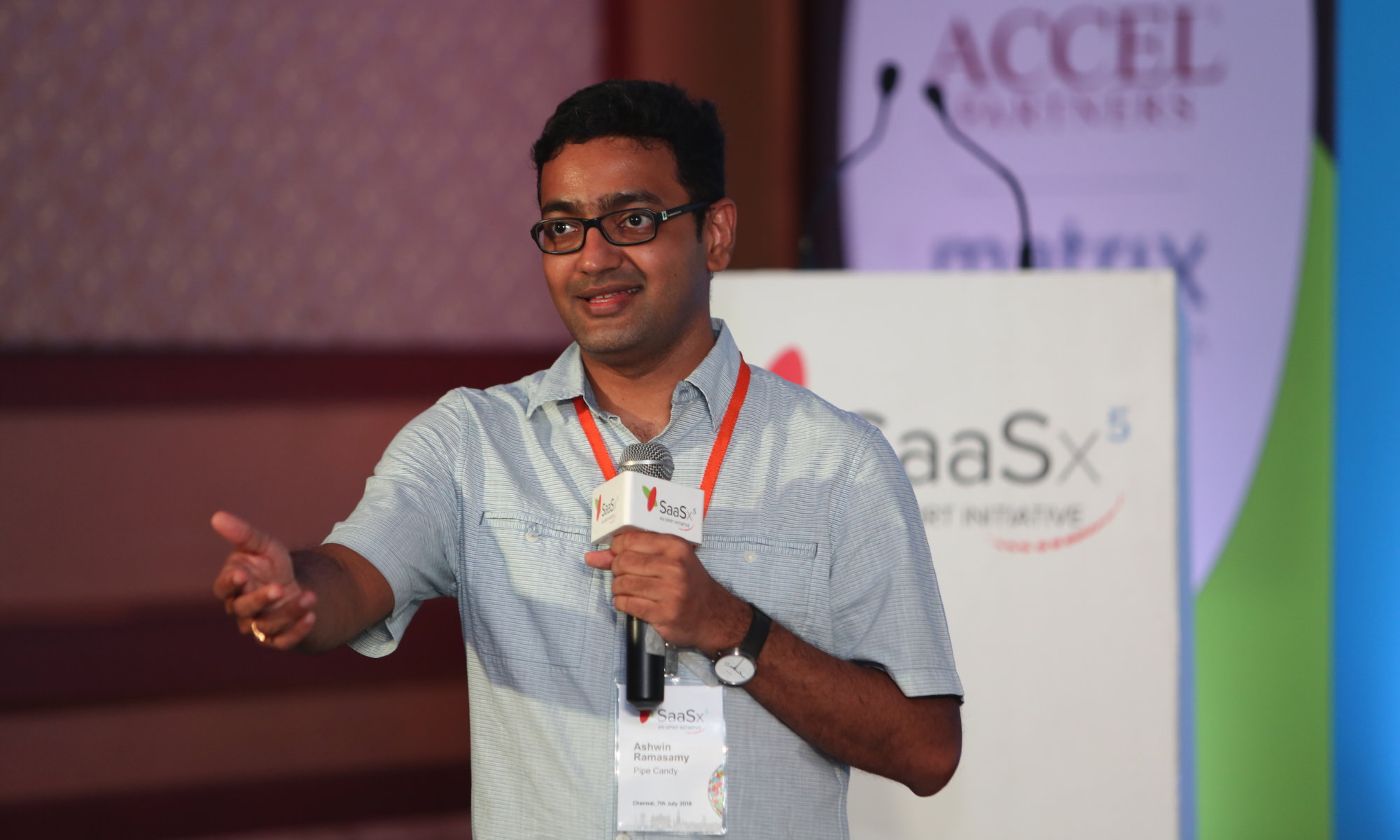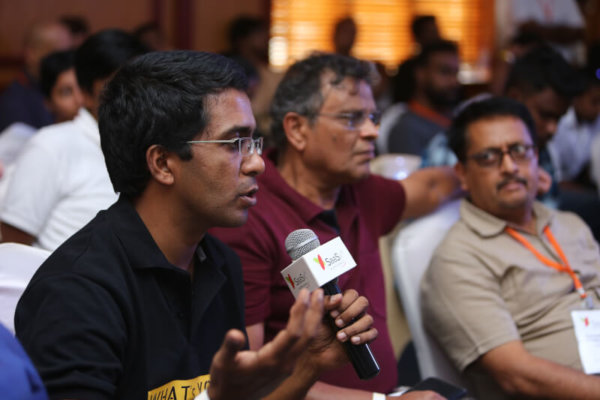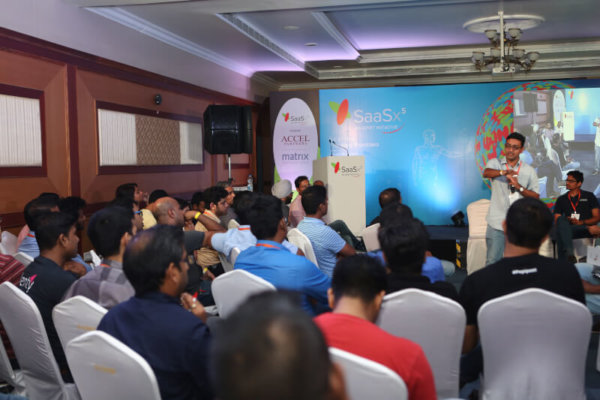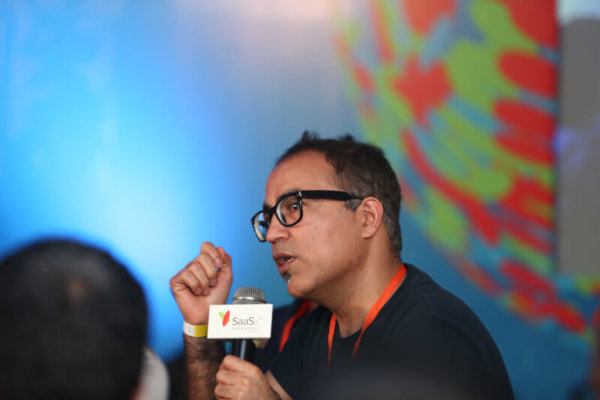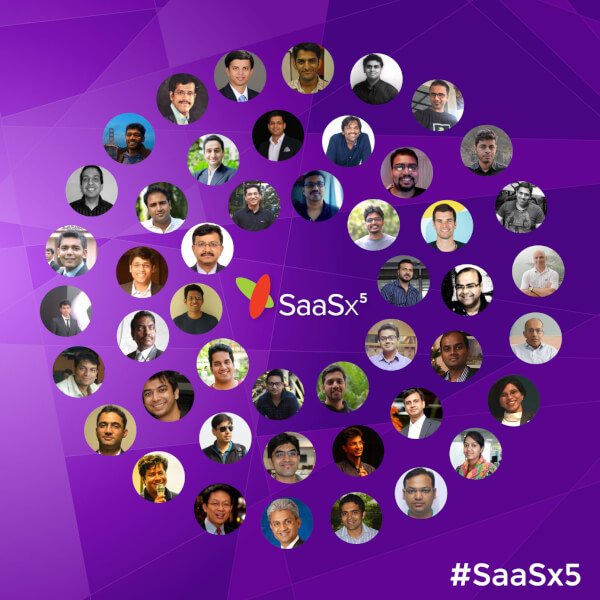David Vs. Goliath had a happy ending, but the odds of beating Goliath as a startup are slim and most startups do not have a fairytale ending, unless…
At SaaSx5, I had the opportunity to hear Vijay Rayapati share his story of Minjar. This was a fairy tale with all the right ingredients that kept you engrossed till the end. With angels (investors) on their side, along with Minjar and Vijay’s prior experience, Minjar could have faced many Goliaths in their journey. Instead of going the distance alone, Vijay followed the Potential Strategic Partner (PSP) playbook (Magic Box Paradigm) and identified one in AWS. His reasons were clear, one of the biggest challenges a startup faces is distribution. And, a PSP can open several doors instantly, making distribution easier, revenue growth faster and gives the startup multiple options. As a startup, you need to think about a PSP early in the game at the “Flop” and not at the “Turn”. You need time to develop a PSP and you need to start early.
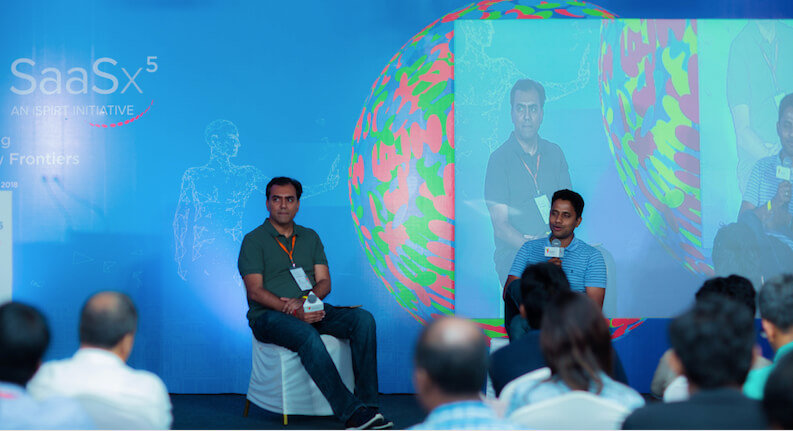
Identifying a PSP in your vertical maybe easy, but building a relationship with them is the hardest. It requires continuous investment of time to build the bond with the PSP such that they become the biggest evangelist of your product. This involves building relationships with multiple people at the PSP -from Business, Product & Tech- to make sure you have the full support from the company to scale this relationship without roadblocks. In the case of Minjar, with AWS as their PSP, it opened roads to customers, built their brand and also increased the value of the company. One of the highlights of the Minjar story was about the CTO of AWS, evangelizing the product at their conference. As Vijay ascertained “Invest time in people who can bring visibility and credibility to your company”. Focusing on these people is a sales channel by itself, and a Founder has to be involved in building that channel when it shows glimmers of hope. The Minjar story had a happy ending, because they invested more time in building their PSP relationship and limiting other marketing activities: they did not spread themselves too thin. This involved multiple operational changes like training, presenting thought leadership & co-selling at conferences, and making sure the end users at the PSP are successful in using your product. It is also important to note that a partnership is not a reseller or transactional relationship. A partnership is a relationship of strengths, in which each entity brings unique skills and together provides exponential value to the end customer. Partnerships work when you have champions leading on both sides of the table and one of the best outcomes a PSP can provide to a startup is a strategic acquisition. A PSP is one of the best ways for a startup to exit, especially if you have not raised a lot of capital.
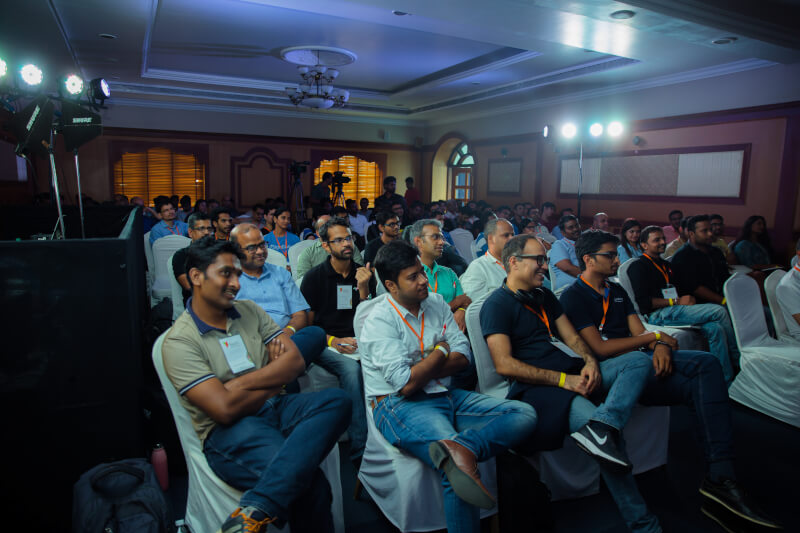
At Tagalys we have tried to develop relationships with PSPs; twice, and we seem to be making good progress today after one failed attempt. My learnings resonate with Vijays’ and some of them are
Persona: Not every large enterprise, who might also serve your target customer, is a valid PSP. An enterprise is an ideal PSP if the value you provide as a startup is something that can be incorporated into the product or process of the Enterprise, and without which the end value of the enterprise depreciates. If your startup is not important to the customers of the PSP, then they are not a match for your startup.
Timing: In your early days, a startup needs to focus on customers, customers and more customers. A PSP is likely to work with you only if you are part of the affordable loss for them. Very early in your stage the risk is too high for the PSP to consider the relationship an affordable loss. Remember, you are adding value to the PSP, hence any risk in the value proposition you bring to the table, is a risk to the end customer. Only after having proven your value to your own customers, will a PSP be willing to take you to their customer.
Credibility: Today, Tagalys works with many recognizable customers in the country and that makes the process of gaining credibility & trust easier. Your product is only as good as what your customer says it is. For a PSP to work, you need buy in from stake holders like the CEO, CTO & Product Managers and they are going to put their neck on the line if they can trust you. Customer references are the best channels to gain trust.
Lifecycle: As CEO, I have time to invest in meeting with various stakeholders at the PSP because our product is in steady state. This steady state of the product is theright time to speak with a PSP because your team can take on this additional responsibility. We also have a clear understanding of our expected outcomes, risks and upside in working with the PSP, hence our conversations are well guided and makes the discussion very productive.
Bill of Materials: While Tagalys is a line item in what the PSP provides to the market, we are an important line item who can potentially extrapolate the end value provided to the customer.
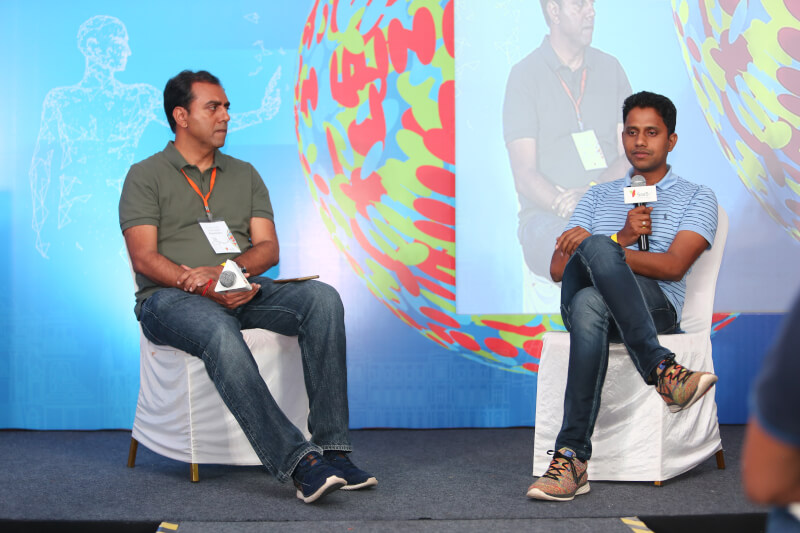
Not every startup can find a strategic partner, but one thing is for certain, as Vijay said, “You miss 100% of the shots you do not take”.
Antony Kattukaran is the Founder & CEO of Tagalys. Tagalys is a merchandising engine for online retailers, dynamically predicting what products to display across search & listing pages to increase conversion.


